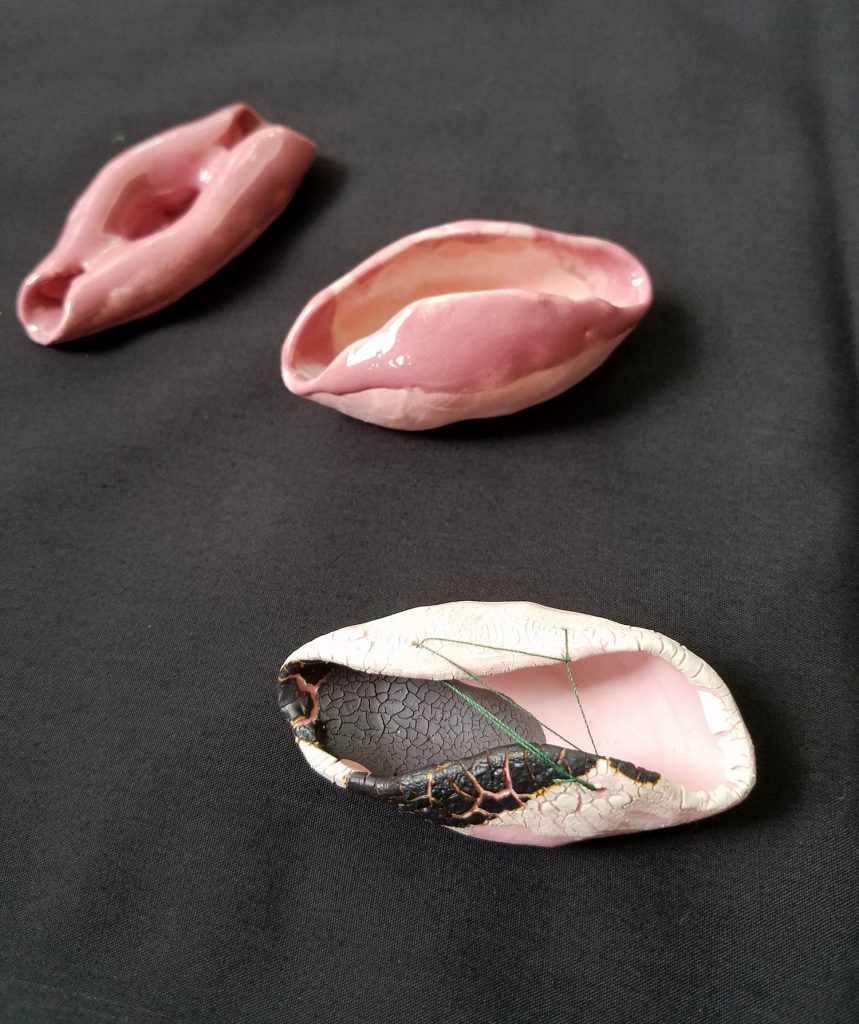April 5, 2018
 Tiernee Schatz is a second-year graduate student at Mount Mary University in Milwaukee, Wisconsin. She interned and continues to work as an artist at the Gerald L. Ignace Indian Health Center (GLIIHC), which offers a holistic, cultural, community and family model of wellness serving the urban Native American population. Schatz volunteered with the National Alliance on Mental Illness (NAMI) of Washington County and currently works at a residential substance use treatment center, which focuses on healing underlying traumas and co-morbid substance use through individualized, holistic recovery. She most values her AATA membership for the access to the Journal, the student scholarships, and the “affordable and necessary student-liability insurance for my internship placements.”
Tiernee Schatz is a second-year graduate student at Mount Mary University in Milwaukee, Wisconsin. She interned and continues to work as an artist at the Gerald L. Ignace Indian Health Center (GLIIHC), which offers a holistic, cultural, community and family model of wellness serving the urban Native American population. Schatz volunteered with the National Alliance on Mental Illness (NAMI) of Washington County and currently works at a residential substance use treatment center, which focuses on healing underlying traumas and co-morbid substance use through individualized, holistic recovery. She most values her AATA membership for the access to the Journal, the student scholarships, and the “affordable and necessary student-liability insurance for my internship placements.”
In her view, “art therapy is effective because it can circumvent the defenses and limitations of language. The process is adaptable, surprising, and powerful. Art therapy provides a relatively safe environment to experiment, fail, succeed and opportunity to learn new skills. It provides a tangible template and experience people can carry forth in their personal evolution outside of therapeutic relationships.” For the future of the profession, she hopes to see “a unified community focused on empathy and action.”

“Harvested” by Tiernee Schatz. Summer, 2017. Pink porcelain, cone 6 glaze, embroidery thread, and Spanish red iron oxide.
Artist’s Statement: “’Harvested’ is a work I created while processing specific and collective trauma stories, with the paralleling connection being made in society’s consumption and abuse of natural resources. Honor the Earth, a non-profit organization founded to raise awareness and financial support for Indigenous environmental justice helps draw the lines with the following announcement:
There is an epidemic of sexual violence being perpetrated against indigenous women in the Great Lakes region, driven by extreme extraction in the Bakken oil fields in North Dakota and the Tar Sands of Alberta. Whether through fracking, or oil sands mining, or mountaintop removal, the violation of the earth through extreme extraction runs parallel to the violation of the human rights of Native people. ‘Violence against our earth and water is perpetrated on a daily basis, against those things absolutely vital to our very existence. We can’t be surprised that people who would rape our land are also raping our people. We must do something to stop this from continuing,’ said Patina Park, Executive Director of the Minnesota Indian Women’s Resource Center.’”
